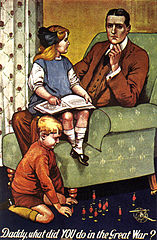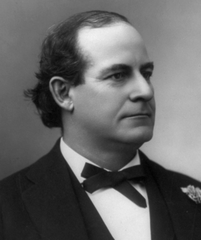
How would the creationism-evolution controversy have been different if World War I had never happened? Today the question is answered by Ronald L. Numbers, the Hilldale Professor of the History of Science and Medicine Emeritus at the University of Wisconsin, Madison. Numbers is the author of The Creationists (1992; expanded edition 2006) as well as Darwinism Comes to America (1998).
Two facts about the outbreak of the antievolution crusade in the United States in the early 1920s are beyond dispute: that the conflict broke out only a few years after the end of World War I, and that participants on both sides of the controversy sometimes cited German behavior during the war as evidence of the evils of Darwinism. To William Jennings Bryan, the pacifist leader of the antievolutionists, the war demonstrated the paralyzing influence of Darwinism on the human conscience. “The same science that manufactured poisonous gases to suffocate soldiers,” he claimed, “is preaching that man has a brute ancestry and eliminating the miraculous and the supernatural from the Bible.” He typically cited two books to support his argument. The first, Vernon Kellogg’s Headquarters Nights: A Record of Conversations and Experiences at the Headquarters of the German Army in France and Belgium (1917), by a distinguished Stanford biologist, recounted firsthand talks with German officers that revealed the role Darwin’s biology had supposedly played in persuading the Germans to declare war. The second, Benjamin Kidd’s Science of Power (1918), purported to demonstrate the historical and philosophical links between Darwinism and German militarism. Like Bryan, George McCready Price, the leading scientific authority in the fundamentalist camp, thought that World War I, during which Germany put “the ruthless ethics of Darwinism...into actual practice,” provided ample evidence of the threat evolution posed to human freedom.

Both fundamentalists and scientists took these revelations seriously. But whereas Bryan and Price responded by attempting to quash the offending doctrine, a number of American biologists sought to restore the tarnished reputation of science by stressing the importance of cooperation rather than conflict in the evolutionary process. (See Gregg Mitman, “Evolution as Gospel: William Patten, the Language of Democracy, and the Great War,” Isis 81 (1990); 446–463.)
Many other factors, however, also inflamed the controversy. By the early 1920s biological evolution had infiltrated numerous schools and churches, even in the American South. As Bryan discovered during his travels around the country, the theory of evolution was already disturbing the spiritual lives of America’s own young people. From frequent visits to college campuses and from talks with parents, pastors, and Sunday-school teachers, he heard about an epidemic of unbelief that was sweeping the country. On investigating the cause, his wife reported, “he became convinced that the teaching of Evolution as a fact instead of a theory caused the students to lose faith in the Bible, first, in the story of creation, and later in other doctrines, which underlie the Christian religion.” Once again Bryan found confirming evidence in a recently published book, Belief in God and Immortality (1916) by the Bryn Mawr psychologist James H. Leuba, who demonstrated statistically that college attendance endangered traditional religious beliefs.
The early twentieth century witnessed the unprecedented growth of public high schools, most of which used biology texts that presented evolution favorably. The political repercussions of this development, largely independent of the war, are explored in Adam R. Shapiro’s excellent Trying Biology: The Scopes Trial, Textbooks, and the Antievolution Movement in American Schools (2013). It is also important to note that the fundamentalist movement, launched with the publication of The Fundamentals (1910–1915), antedated World War I—and probably would have proliferated in the 1920s with or without the Great War.
Although I am not a big fan of counterfactual history, in this instance I feel confident in saying that even without World War I a cultural clash over evolution would undoubtedly have occurred in the United States.
For more details, see Ronald L. Numbers, The Creationists: From Scientific Creationism to Intelligent Design, expanded edition (Cambridge, MA: Harvard University Press, 2006), especially pp. 53–57, 103.
